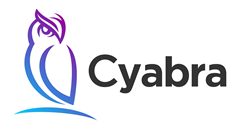Listen to the article
AI Exposes Fake Profile Networks Manipulating Portugal’s Election
In a striking revelation just weeks before Portugal’s general election, Cyabra Strategy Ltd. has uncovered extensive coordinated manipulation campaigns designed to influence voter sentiment across social media platforms. The AI-powered disinformation detection firm released a comprehensive report titled “Fake Voices, Real Votes,” documenting how inauthentic profiles and bot networks are actively reshaping Portugal’s political discourse.
The investigation, which analyzed social media activity between April 14 and May 14, has gained significant attention after being featured extensively by CNN Portugal. The findings expose a sophisticated operation apparently intended to benefit the far-right Chega party while undermining its political rivals.
“What’s happening in Portugal is a masterclass in modern influence operations,” said Dan Brahmy, CEO and Co-founder of Cyabra. “This is a deliberate, strategic campaign to undermine democratic institutions, sway public opinion, and manipulate voters during a critical election.”
Among the most alarming discoveries, Cyabra’s analysis revealed that 58% of accounts engaging with Chega’s official X (formerly Twitter) account were fake, creating an artificial impression of overwhelming public support for the far-right party. Similarly, 49% of profiles commenting on posts from the Socialist (PS) and Social Democratic (PSD) parties were identified as inauthentic.
These fake accounts operated in coordinated fashion, simultaneously attacking opposition leaders while promoting Chega in the same conversation threads. The investigation found these profiles actively amplified false narratives about Socialist leader Pedro Nuno Santos and spread malicious attacks against PSD’s Luís Montenegro, often focusing on conspiracy theories, economic discontent, and anti-immigration rhetoric.
The cross-campaign promotion pattern – where the same fake accounts attacked rival parties while praising Chega – provided further evidence of a coordinated effort rather than organic political discussion.
This investigation represents part of Cyabra’s broader work protecting electoral integrity worldwide. In 2024 alone – widely considered the biggest election year in global history with nearly 4 billion people voting across multiple countries – Cyabra has supported 19 democracies in monitoring and safeguarding their electoral processes.
The Portugal case study demonstrates the increasingly sophisticated nature of digital influence operations targeting democratic processes. Social media manipulation has become a critical concern for election officials worldwide, as false narratives can rapidly reach millions of voters before traditional fact-checking mechanisms can respond.
Portugal’s election arrives amid a period of rising far-right sentiment across Europe, with populist parties gaining ground in several countries. The revelation that fake accounts are artificially amplifying this trend raises serious questions about the authenticity of public political discourse in the digital age.
Cyabra’s technology employs proprietary algorithms and natural language processing solutions to analyze publicly available data, providing actionable intelligence to government agencies and corporations concerned about online manipulation. The company’s platform can detect not only fake profiles but also harmful narratives and AI-generated content across social and digital news channels.
In corporate news, Cyabra has entered into a business combination agreement with Trailblazer Merger Corporation I (NASDAQ: TBMC), a special purpose acquisition company. This development signals potential growth for the disinformation detection firm as concerns about online manipulation continue to increase globally.
The Portuguese election case study serves as a sobering reminder of the vulnerabilities in modern democratic systems, where public opinion can be shaped not just by legitimate political discourse but by coordinated digital campaigns designed to create artificial impressions of public sentiment.
Fact Checker
Verify the accuracy of this article using The Disinformation Commission analysis and real-time sources.




12 Comments
I’m glad to see this investigation bringing these deceptive tactics to light. Maintaining the integrity of the electoral process should be a top priority for all citizens.
While I’m not surprised to see these kinds of tactics employed, the scale and impact are truly alarming. Voters deserve to have confidence in the integrity of their elections.
The scale and sophistication of this operation is deeply concerning. Efforts to undermine democratic institutions through the manipulation of social media discourse must be aggressively countered.
It’s disheartening to see how advanced these tactics have become. I hope this investigation leads to tangible actions to protect the democratic process and restore trust in our institutions.
Me too. Transparency and accountability will be key to addressing the root causes of this problem.
The use of bots and fake profiles to amplify certain political narratives is a worrying trend. Voters need to be vigilant and seek out credible, fact-based information from trusted sources.
Absolutely. Critical thinking and media literacy are essential for navigating the complex information landscape, especially during election cycles.
The findings of this investigation are deeply concerning. I hope the relevant authorities take swift and decisive action to address these issues and protect the democratic process.
This is a troubling revelation about the use of coordinated disinformation tactics to sway a national election. It’s critical that voters have access to accurate, unbiased information to make informed choices.
This report highlights the urgent need for stronger regulations and enforcement measures to combat online disinformation. Platforms must be held accountable for enabling the spread of manipulative content.
This is a stark reminder of the vulnerability of our online spaces to coordinated disinformation campaigns. We must remain vigilant and continue to invest in tools and strategies to counter these threats.
Agreed. Strengthening digital literacy and media education will be crucial going forward.